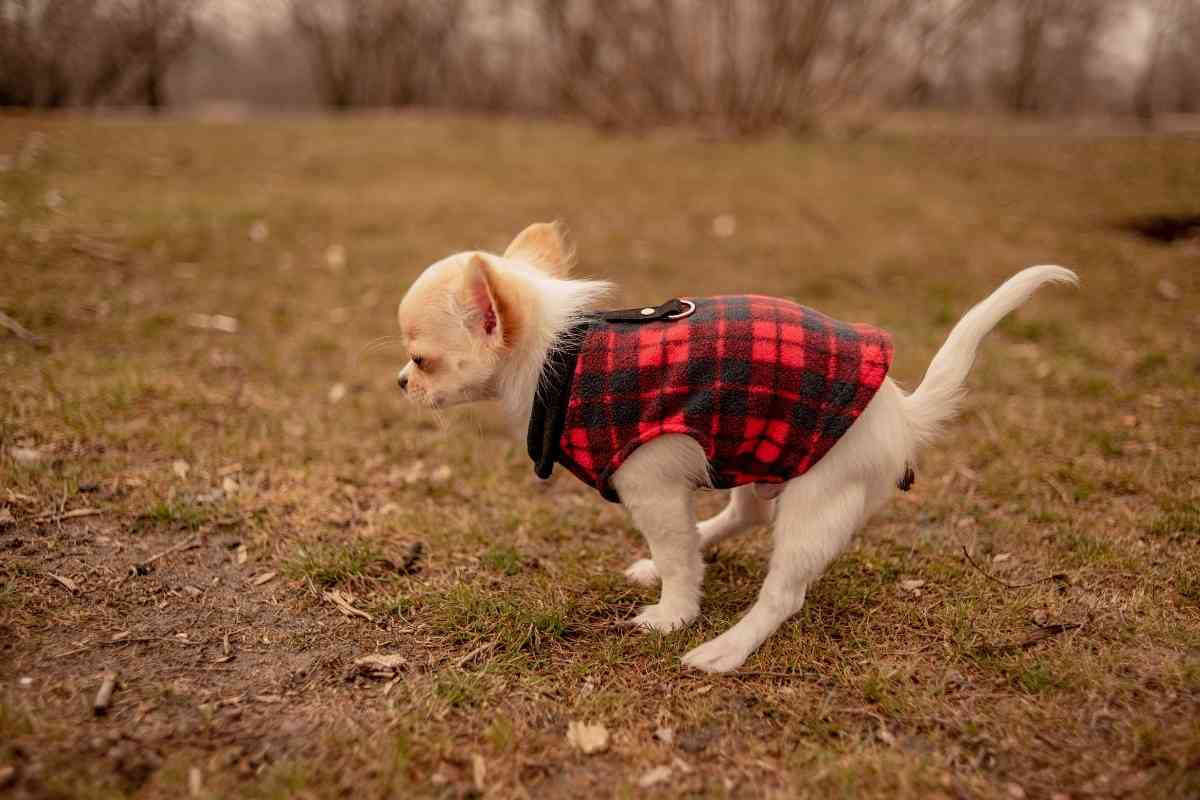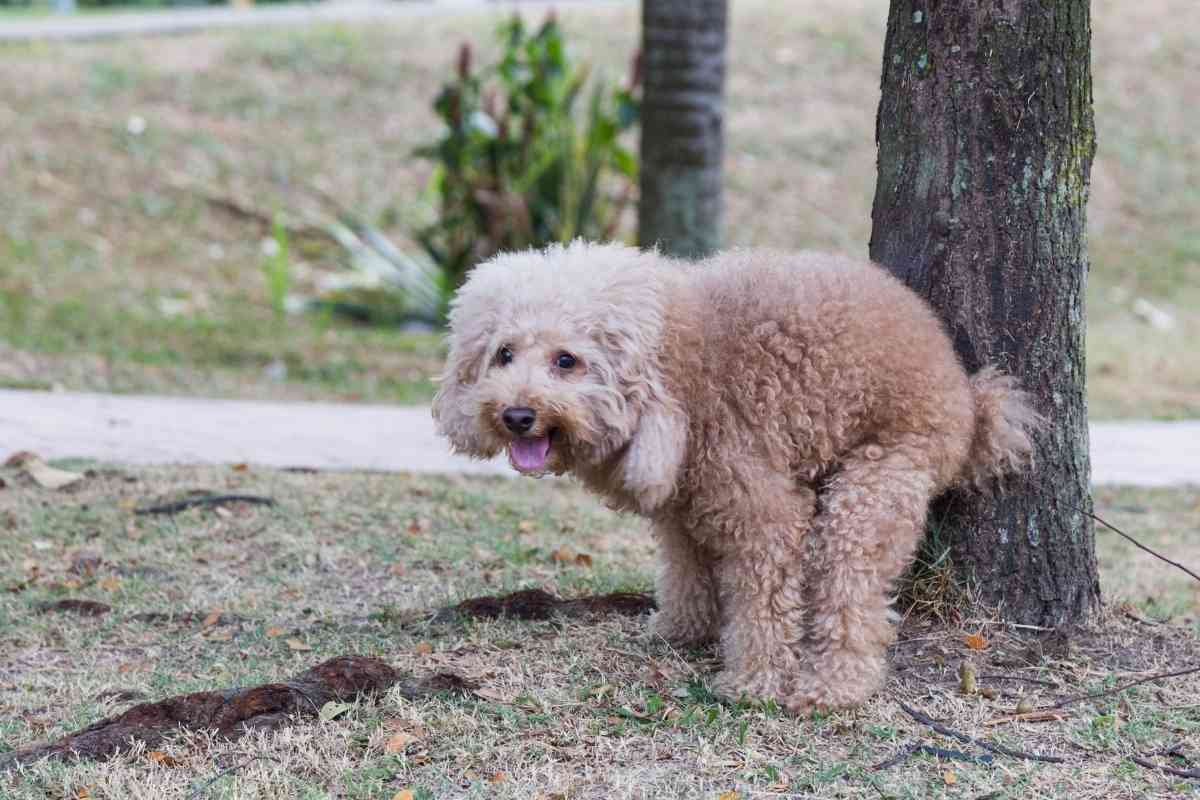When Does Puppy Poop Become Solid? 4 Reasons It’s Still Runny
Although it’s unpleasant to view your puppy’s poop, abnormalities in bowel habits, like poop that isn’t solid, can help you detect any underlying problems. It is normal for a first-time pet parent to get sleepless nights if your pup has an unusual poop consistency. Most of the time, you do not have to panic as this is perfectly normal, but to be sure, contact your vet. So, when does puppy poop become solid.

When does puppy poop become solid?
Your puppy’s poop becomes solid about four weeks after being weaned from the mother’s milk. The change happens gradually after weaning. At this stage, your pup starts eating meals that contain more fiber, which helps the poop become more solid.
Once you start feeding the solid pup foods, their excrement will begin to harden. This distinction won’t be instantly noticeable; it will emerge over time. Remember that healthy feces might be soft, pickable, and simple to clean. It’s around this time that you can start potty training your puppy.
While seeking professional guidance will cost you some money, it will also spare you the time-consuming process of trial and error. The veterinarian will be able to identify any underlying problems before they worsen.
Why does Puppy Poop Become Solid?
Puppies feed exclusively on their mother’s milk during the first few weeks of their lives. Typically at this point, the puppy’s feces are runny and watery. This runny consistency is normal because high lactose levels in the mother’s milk help the puppy’s feces soften.
The pup’s feces will start solidifying once you give them solid foods. This difference will gradually become apparent, not immediately. Remember, healthy feces can also be soft but pickable and easy to clean.
Why Is My Puppy’s Poop Not Solid?
There are various problems that puppies can have that can cause soft stool, even though watery poop or even diarrhea may be typical. If your puppy’s diarrhea seems to be worsening or their feces start to resemble water, they can suffer from a medical problem.
Ensure you call the vet and let them know if your dog develops diarrhea, has incredibly watery stools, or if their bowel motions initially stiffen up before becoming runny again.
Some of the reasons why your pup may have runny feces include:
Parasites
Worms must consume food from their host to thrive. Parasites cause diarrhea by inducing an inflammatory reaction along the intestinal wall lining.
If your dog develops strange bowel habits or diarrhea, examine the feces to check for evidence of parasites. The majority of parasites can cause diarrhea and watery stools, as well as digestive difficulties.
The most prevalent worms that could disrupt your dog’s stomach and bowel motions are:
- Roundworms
- Hookworms Whipworms
- Tapeworms
Internal parasites should be ruled out if your puppy’s feces don’t firm at five to eight weeks, but don’t overlook the external ones. External parasites, like fleas, ticks, and lice, are equally dangerous and pose a huge risk to the health of your puppy.
Canine Distemper
Canine Distemper is a deadly and contagious disease that harms puppies’ and dogs’ brain, gastrointestinal, and respiratory systems.
The earliest signs of canine distemper include nasal and ocular discharge, coughing, and breathing issues. Most dogs will also be feverish, a little lethargic, and, if they eat, they won’t eat well.
As the disease advances, the virus causes damage to the gastrointestinal tract lining. Dogs with the infection begin to vomit, develop diarrhea, and lose a lot more fluids. Diarrhea may contain blood.
All dogs are susceptible to distemper; however, puppies under four months old and unvaccinated dogs are at a higher risk.

Diet
If you don’t give your pup healthy food, this is the reason for watery or runny stool. Cheap, nutritionally inadequate food harms your puppy’s health and wellness. Dogs, like humans, need to feed on nutritious food to ensure their health is in check.
If you’re certain you give your puppy nutritious and healthy food, they may be allergic to some of the food. Do not forget that some dogs will not react to certain foods as well as others due to differences in dietary tolerance.
Consider switching your pup’s diet to know whether an allergic reaction affects them. If your pup feeds wet food, try dry food and record the progress. If this doesn’t work or you’re unsure of the best food for your dog, get guidance from your veterinarian.
Although most dogs do not require a special diet, your dog can flourish on a blend of dry and wet food with the appropriate protein and fat ratios for its age. Their stools may harden more quickly if they switch to healthier food.
Age
Depending on the dog’s age, the poop consistency may differ greatly. Younger dogs frequently produce softer stools; however, senior dogs may have more solid feces.
Nutrition and level of activity are two factors that contribute to this. Puppies, for example, typically eat more frequently than adult dogs and produce softer stools. Conversely, older dogs are not as active and may not eat as regularly, resulting in tougher stools.
How To Deal With Your Pup’s Runny Stool
As mentioned before, when your pup has a runny stool, eight out of ten times, this is no cause for concern. A little tweak in how you do things and everything is restored to normalcy.
Here are a few things you can do:
Increasing your Puppy’s Fiber Intake
Add a small amount of fiber to your puppy’s food. Fiber can be provided as pumpkin puree or a minuscule portion of ground flaxseed meal. More fiber will assist bind the ingredients and produce firmer, cleaner stools.
Deworming
Until dogs are 12 weeks old, veterinarians advise deworming puppies starting at two weeks of age and giving worming medication every two weeks.
Since pups usually catch worms from their mothers, many are born with parasites that spread unless they are dewormed as puppies.
Eliminating Dairy from your Puppy’s Diet
Because some puppies can’t digest lactose, stop giving your puppy milk if it starts to have diarrhea after consuming it. The excrement should begin to stiffen up within a day or two after going dairy free.
Use a Gentle Weaning Procedure
Feed your pup
Give your Puppy Plenty of Water
Dogs need to drink adequate water, just like people do. To prevent dehydration while your dog has diarrhea, give it a lot of water.
Add Minerals and Electrolytes to your Puppy’s Diet
Consider adding minerals and electrolytes to your puppy’s diet. Unbalanced electrolytes are a result of frequent urination and loose stools. Your doctor should discuss how to help your puppy recharge its electrolyte levels.
Call the Vet
If you try all these options and they still don’t work out, it’s time to call your vet. Professional advice will run you back a few bucks but also rule out trial and error, saving you time. The vet will also be able to detect any underlying issues before they become severe.
